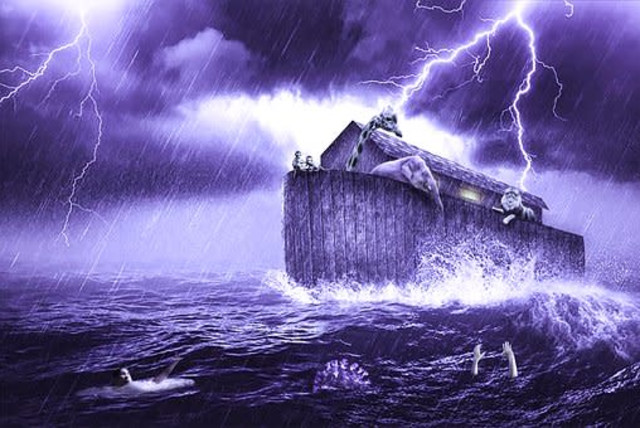Parashat Noah: Perhaps they will repent

No matter how deep the sin or how severe the corruption, if a person repents and resolves to become better, God will welcome him or her back.
In response to the moral and ethical corruption of the world, God decides to bring a flood to destroy it. However, before executing this severe decree, He commands Noah to build a large ark to house a pair of every animal species, offering them protection from the floodwaters. God provides detailed instructions on the structure’s design, materials, and exact dimensions:
“Make yourself an ark of gopher wood; make it with compartments, and caulk it inside and out with pitch. This is how you shall make it: the length of the ark shall be 300 cubits, its width 50 cubits, and its height 30 cubits” (Genesis 6:14-15).
What was the purpose of building the ark, and why did God require a human to construct it by hand? Could He not have destroyed those He wanted to punish and spared those He chose to save without Noah’s technical assistance?
Rashi, the great medieval biblical commentator, addresses this question: God had many ways to bring about salvation. Why did He burden Noah with this construction? So that the people of the generation of the flood would see him engaged in building the ark for 120 years, and ask him: ‘What are you doing?’ He would answer: ‘The Holy One, blessed be He, is going to bring a flood upon the world!’ Perhaps they will repent.”
God, in His mercy, does not desire the destruction of the world, as we recite in the “Ne’ilah” prayer on Yom Kippur: “For You do not desire the destruction of the world.”

For this reason, God instructs Noah to engage in the slow and thorough task of building the ark over 120 years – from planting cedar trees to arranging the smallest compartments for even the tiniest creatures on Earth – so that people might see, reflect, and repent.
The world before the flood was filled with corruption and wickedness. Even animals and livestock were affected. As the sages say, “Everyone robbed one another, and the land yielded its fruits to thieves.”
Why did God want to destroy the world?
The magnificent creation had decayed and become corrupt. Instead of using their talents to build a pure and beautiful world, people used their intelligence and creativity for deceit, crime, and destruction.
God’s original intention for creation was to establish a world built on kindness – one filled with love, compassion, honesty, purity, and integrity. But He could not tolerate a world that had sunk into the filth and darkness of moral decay. Therefore, He resolved to destroy the entire world and begin anew.
However, God chose to delay His plan, hoping that perhaps they would return. “Perhaps they will repent...”
God knew that Noah couldn’t fit all species of animals, insects, birds, and creatures into an ark of this size without a miracle. A miracle would be necessary to save them all. But the entire purpose of the ambitious project was “Perhaps they will repent.”
This principle is embedded in creation: “For Your hand is extended to receive those who return.”
No matter how deep the sin or how severe the corruption, if a person repents and resolves to become better, God will welcome him or her back. ■
The writer is the rabbi of the Western Wall and holy sites.
